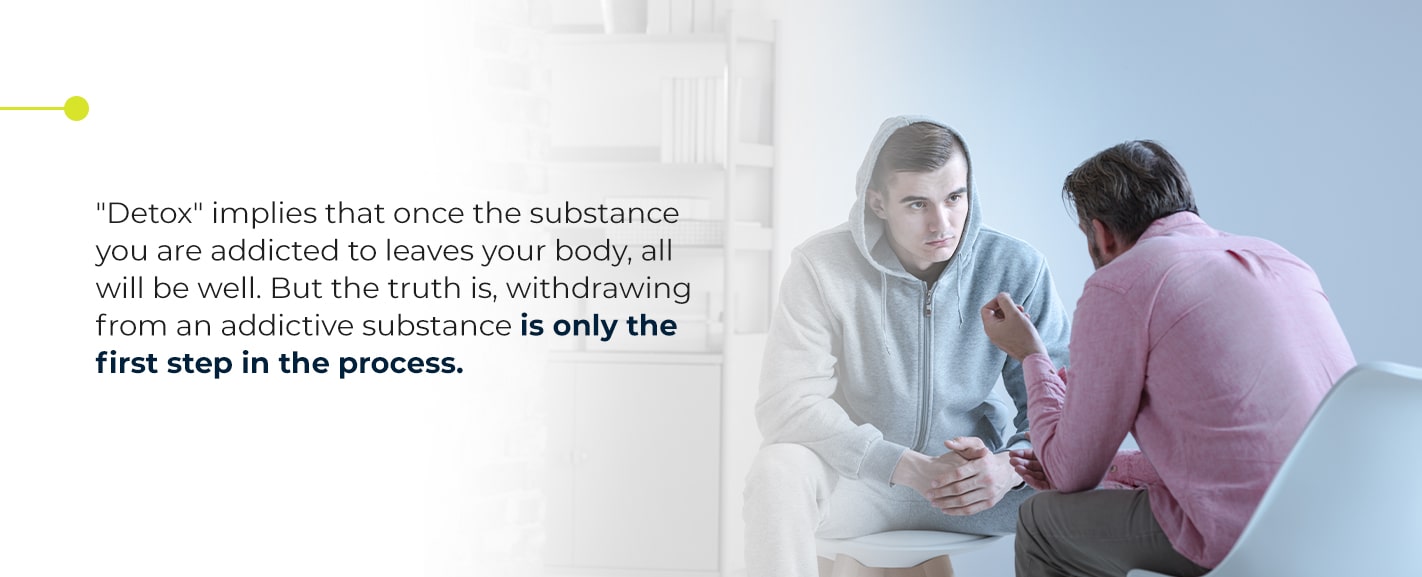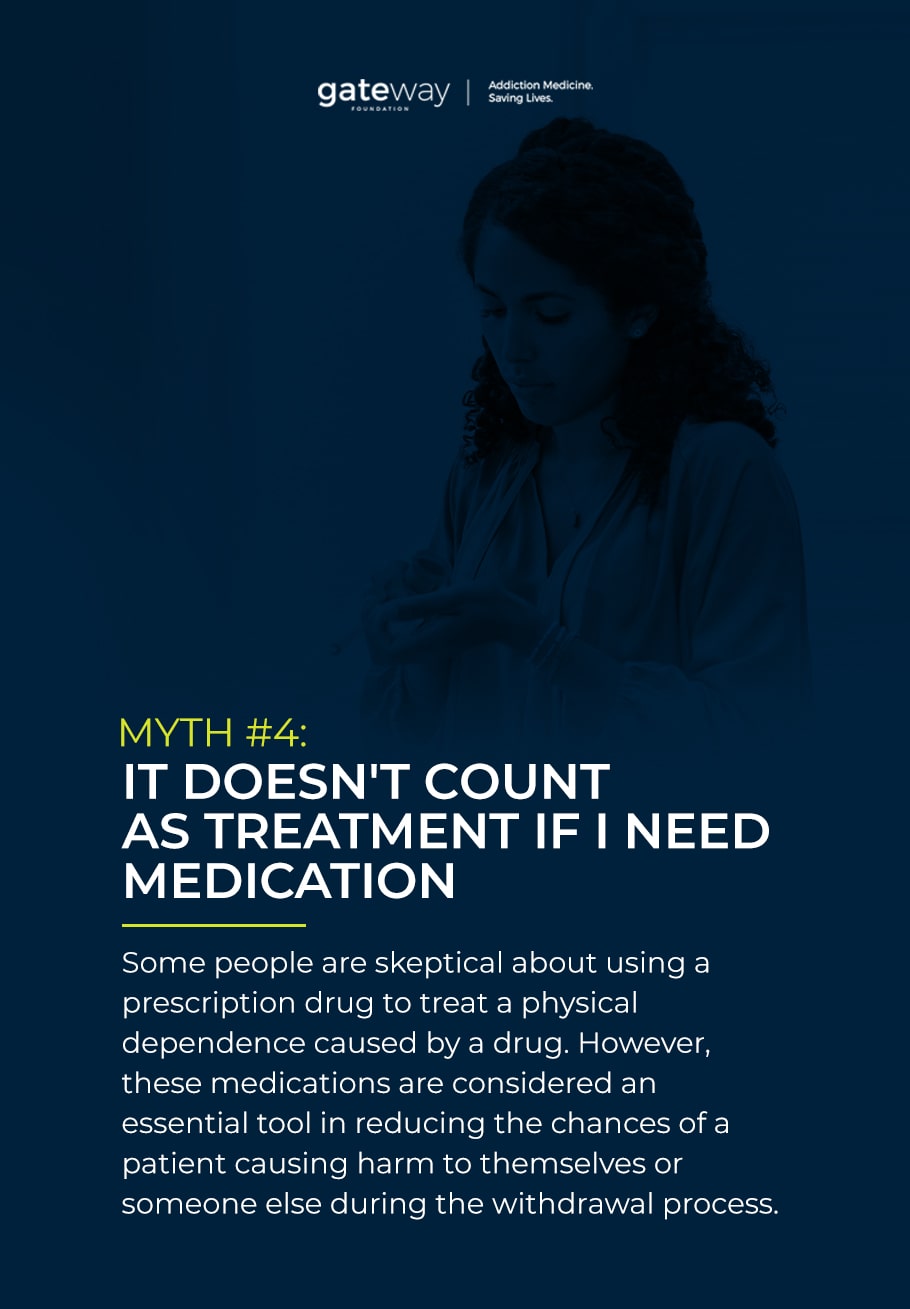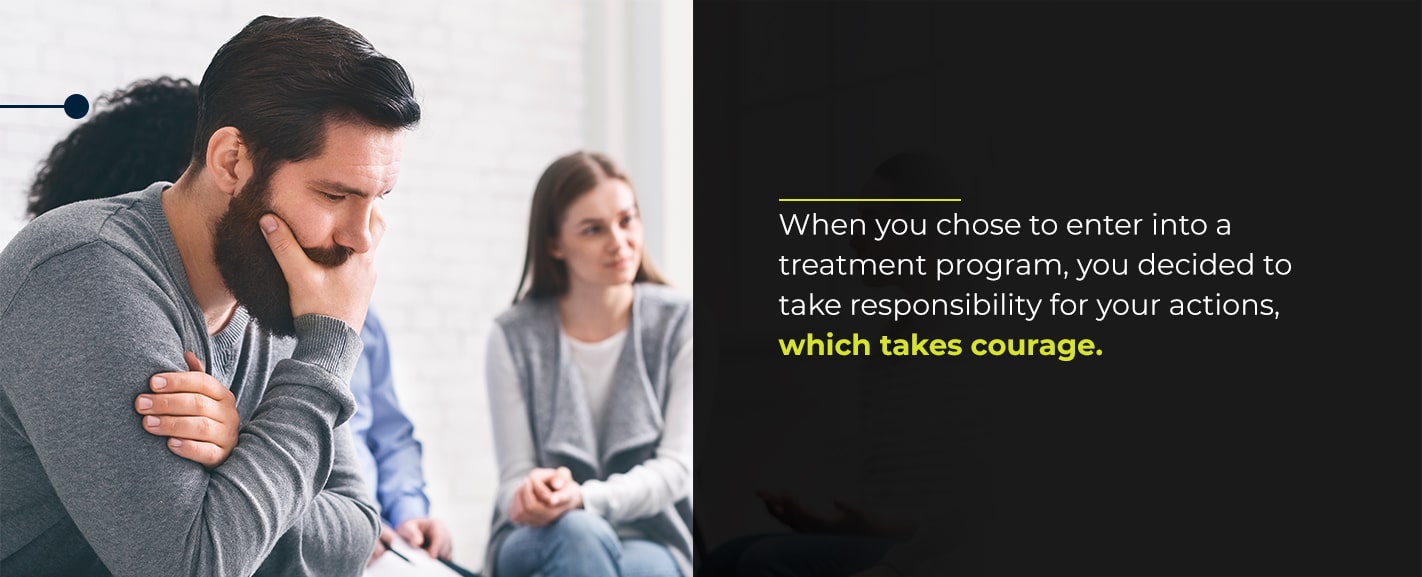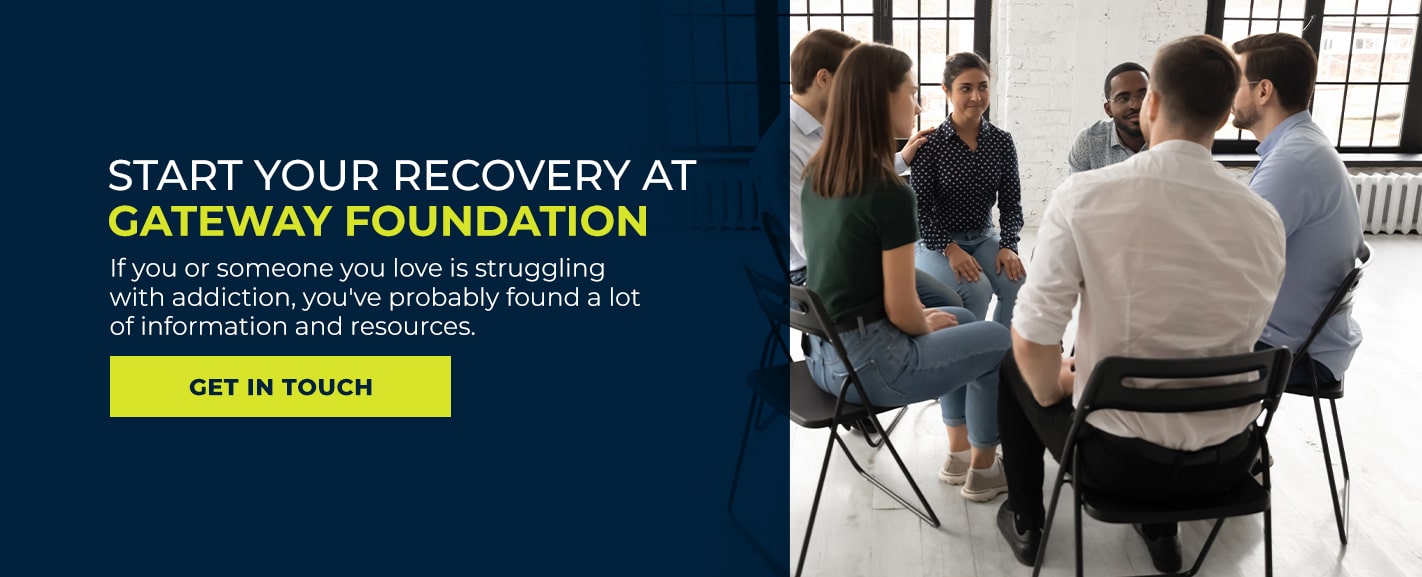- Nov 10
- Drug Addiction Treatment
Deciding to enter an addiction recovery program is courageous because it’s about more than just sharing your feelings or finding the willpower to quit using. Addiction recovery addresses your physical, mental and emotional needs, and that requires effort. Whether you are contemplating this decision or it’s already been made, you should be proud of yourself for taking this important first step.
People are often hesitant to enter recovery because of some of the myths they’ve heard about recovery programs or myths about substance misuse itself. If you’re like most people, you’ve probably heard a lot about drug addiction, but you haven’t heard much about recovery programs or what happens to someone when they decide to fight their addiction.
If you’re on the fence about entering a program, you need accurate information to help you make informed decisions about which program is best for you. You may have heard a few facts about addiction recovery along the way, but let’s separate fact from fiction.
10 Addiction Myths and Facts
Here are 10 of the most common myths about addiction, along with the facts:
Myth #1: I Only Need to Detox
At Gateway Foundation, we prefer to use the term “medically supervised withdrawal.” “Detox” implies that once the substance you are addicted to leaves your body, all will be well. But the truth is, withdrawing from an addictive substance is only the first step in the process.
During withdrawal, you will likely experience some intense physical symptoms that may cause you pain or discomfort. In some cases, these symptoms are so severe, they will make you want to go back to drugs or alcohol just to find some relief. When you undergo medically supervised withdrawal, you choose to be surrounded by a team of experienced, compassionate individuals who can make you more comfortable and help you find relief without going back to your addiction.
Once your body is no longer chemically dependent on alcohol or drugs, more work begins. During treatment, you will work with experienced behavioral health professionals to explore why you became addicted in the first place. You’ll learn how to develop a new mindset that will help you avoid returning to that substance once you leave treatment. Addressing the underlying cause of addiction is key to a lasting recovery.
You will also spend time learning how to take care of your body and mind through healthy eating and exercise. Developing and maintaining a healthy lifestyle can help you heal from the effects of addiction, physically and emotionally.
Myth #2: I Don’t Need Treatment for Withdrawal Symptoms
If you cannot sleep or function normally without drugs or alcohol in your system, you are addicted to a substance. Contrary to what some people believe, addiction is a very real physical dependence on a chemical.
You have become addicted to a substance because your body has learned to rely on that chemical rather than its natural processes. When you remove the alcohol or a chemical substance from your system, your body will have a strong physical reaction to the absence of the substance it has grown accustomed to. That change can result in physical symptoms, including:
- Anxiety
- Nausea
- Vomiting
- Insomnia
- Sweating
- Muscle pain
- Mood swings
- Seizures
In some cases, these symptoms can be so uncomfortable that a person will seek to return to their addiction simply to ease their pain. In other cases, if a person is going through withdrawal and experiences more severe symptoms such as a seizure, they are in danger of serious injury or death if they attempt to face this alone.
Although we can’t prevent you from experiencing withdrawal symptoms, medical supervision can help ease some of your discomforts and protect you from the dangers associated with certain conditions.
Myth #3: It’s Best to Quit Cold Turkey
When someone refers to quitting drugs or alcohol “cold turkey,” they mean they plan to quit abruptly without the help of medication or assistance from experienced medical personnel. Someone who chooses to address their addiction this way typically attempts to stop using drugs or alcohol at home by themselves.
There are two reasons why it’s dangerous to quit cold turkey. First, when your body begins to experience intense withdrawal symptoms, they may be so unbearable that you could be tempted to give up and seek out drugs or alcohol to stop them.
Second, quitting alone can potentially be deadly. Remember, addiction to drugs or alcohol happens when your brain becomes dependent on those chemicals to function. When those chemicals suddenly disappear, you can experience serious side effects that can also be life-threatening. If you aren’t in a supervised environment, you are at risk.
Myth #4: It Doesn’t Count as Treatment if I Need Medication
Medically supervised withdrawal is a broad phrase that covers many different approaches. One of these approaches is using certain medications to ease cravings and help regulate brain chemicals while you’re going through withdrawal. For example, doctors may prescribe methadone to help individuals with opioid use disorder. At Gateway, we use Suboxone or Vivitrol instead when necessary.
Some people are skeptical about using a prescription drug to treat a physical dependence caused by a drug. However, these medications are considered an essential tool in reducing the chances of a patient causing harm to themselves or someone else during the withdrawal process. Going through medically supervised and assisted withdrawal does not diminish your progress toward sobriety.
With the proper guidance and supervision, prescription medications can provide important, and sometimes life-saving, support during withdrawal. Once a patient reaches a certain point in their progress, their medical team can then begin to ease up on the use of medications to treat their symptoms.
Myth #5: I Won’t Have Any Freedom in a Treatment Program
While it’s true that treatment programs have guidelines and rules you’re expected to adhere to, there is also a lot of freedom in our programs. At Gateway, we don’t offer a one-size-fits-all approach to treatment because we believe that each person is an individual who needs individual attention.
If you enter our residential program, you can expect healthy meals, time to socialize with peers and comfortable surroundings designed to help you relax and focus on recovery. You’ll have time to yourself and, as your program progresses, you may even be able to have visits with loved ones. You could also consider outpatient programs made to let you maintain your independence while seeking addiction recovery treatment.
Myth #6: I Can’t Leave My Life to Seek Treatment
The idea of putting your life on hold to enter a treatment program may seem overwhelming. You may be scared to leave your loved ones behind or worried you won’t have a place to return when your treatment concludes. It’s natural to feel this way, but pausing from your current daily life can positively benefit your treatment and overall recovery.
A significant part of the treatment process is shedding the behaviors and situations that likely contributed to your addiction in the first place. When you give yourself time to heal in an environment that’s free from triggers, you are giving yourself a better chance of maintaining your sobriety after you return home. If an intensive outpatient program is right for you, you can seek treatment without leaving home for extended periods.
Treatment is also designed to help you learn to make positive changes and prepare to reengage with your family, friends and coworkers after your program. It can also be designed to include your family and support system so they can learn more about what you’ve been dealing with and how to encourage you in your recovery.
Myth #7: If I Get Sober, I Won’t Have Fun Anymore
Unfortunately, alcohol and certain recreational drugs are often associated with “fun,” and many people have been conditioned to believe you can’t have a good time without them. But that’s simply not true. Life in recovery can be deeply rewarding and enjoyable in new ways.
When you complete your initial program, it will be wise to avoid the people and situations that may cause you to crave alcohol or other substances. You might not want to accept a friend’s invitation to head out to a club, or you might skip going to a house party where you know drugs will be present. You may also find it’s beneficial to avoid certain friends or groups of people if they played a role in encouraging you to use.
As you progress in your recovery, you will find you can make choices and spend time with friends without constant fear of relapse. Part of this comes from making the most of your treatment program, learning to identify your triggers and developing strong coping strategies for saying “no” when you face temptation. You might also join a rehab alumni community to enjoy sobriety-friendly events and create new friend circles with others who understand and support your recovery journey.
Myth #8: People Will Judge My Decision
While it’s true that you may encounter some people who don’t understand your decision, treatment provides you with an environment where you are surrounded by people who know what you’re going through. Besides the others in your program, many addiction programs rely on help and support from former patients who have turned their lives around and are now committed to giving back to their communities.
You will also encounter medical staff and counselors who are experienced in guiding patients through treatment and are committed to encouraging you through every step of the process.
Myth #9: If I Enter Recovery, There’s Something Wrong With Me
There is an unfortunate stereotype that a person who becomes addicted to alcohol or drugs is a “bad” person. This idea couldn’t be further from the truth. There are many reasons a person’s body becomes dependent on chemical substances, but it goes beyond who they are inside.
In some cases, people are genetically predisposed to become addicted to something — if they begin to use alcohol or drugs, they are more likely to become addicted to them. People may also turn to alcohol or drugs to self-medicate because they are struggling with depression, anxiety or another mental health issue.
When you enter into addiction treatment, you may encounter friends or family members who don’t understand what you’re doing or why you’re doing it. They may say or do things that make you feel inferior. It’s important to remember how hard it was to take a step toward recovery, and it’s something to be proud of.
Yes, you may have made some poor choices that led you down the road to addiction, but you are bigger than your mistakes. And when you chose to enter into a treatment program, you decided to take responsibility for your actions, which takes courage.
Recovery will take effort. You may have days where you also question what you’re doing, but know that there is hope and wholeness on the other side — if you will choose to pursue it.
Myth #10: Once I Complete Addiction Treatment, I’m on My Own
Gateway’s aftercare programs are designed to provide you with a safety net after you leave your initial treatment program. Even after several weeks in treatment, it’s crucial to have the support you need as you gain your life back. This support can help you overcome the temptation to relapse, as well as provide you with the tools you need to continue your sobriety.
You can select from various options, including access to group meetings, outpatient counseling services, sober living homes and programs to connect with other alumni for help and support. Connecting with support during and after treatment is essential to maintaining sobriety long-term. Whether through organized group therapy or informal get-togethers, joining others who are also recovering from addiction can help you combat isolation. Many patients also draw strength from realizing they are not alone.
Peer support is also designed for you to meet people who are further along in their recovery journey. Listening to them share their stories and seeing how far they have come can provide encouragement and motivation on the tough days. It also gives you someone to turn to who understands what you’re dealing with and won’t judge you for it.
Start Your Recovery at Gateway Foundation
If you or someone you love is struggling with addiction, you’ve probably found a lot of information and resources. But finding the right treatment program takes some research. A recognized leader in addiction medicine, Gateway Foundation’s programs are based on medical and psychological research but tailored to meet each patient’s unique needs and challenges. Offering residential, outpatient and day treatment options, Gateway is committed to helping you find a way forward.
Ready to begin the process of overcoming addiction? Contact us today.






